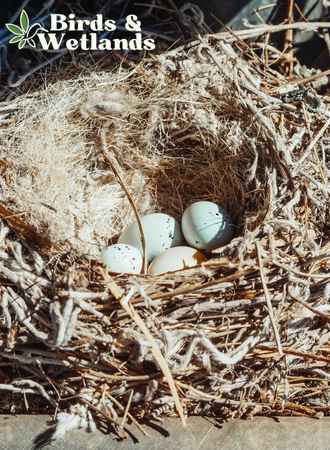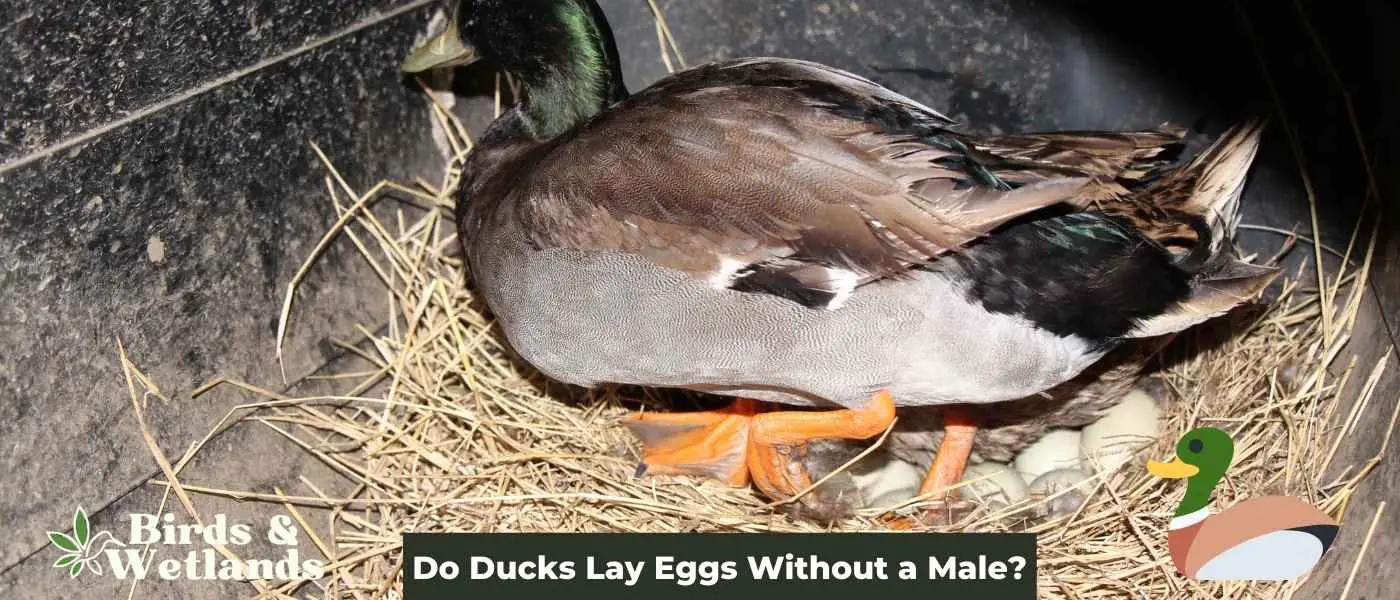Domesticated and wild ducks, with their distinctive waddle and webbed feet, are a common sight in many parts of the world. While most people know that ducks lay eggs, many are unaware they can do so without a male. Female ducks can lay eggs even if they have never seen a male duck. So, how exactly does this work? Let’s look at how female ducks produce eggs without a male.
Female ducks can lay eggs without the presence of a male. However, it is important to note that producing fertile eggs requires the presence of both a male and female duck.
Fertile eggs will hatch into ducklings, while infertile eggs will not. If you are looking to produce fertilized eggs, it is important to make sure that you have both a male and female duck in your flock.
Key Takeaways on Will Ducks Lay Eggs Without a Drake
It is entirely possible that female ducks lay eggs without mating with a male.
Ducks need fertile eggs to hatch into ducklings. An unfertilized egg will not hatch into a young duck.
After they lay eggs, female ducks will still sit on them whether they are fertilized eggs or not.
How Do Ducks Lay Eggs Without a Male?

So, can a duck lay without mating? Yes, that is entirely possible. Most ducks are well-known for their egg-laying ability without the assistance of a handsome male duck. Egg-laying female ducks can lay all the eggs on their own without mating with drakes but the eggs laid will not be fertile. The ability to lay eggs without a male is entirely possible in the right conditions, such as high-quality food sources and exposure to sunlight.
Domestic ducks tend to be better year-round layers than chickens, these farm animals can lay infertile eggs even during the cooler winter when other birds are more likely to stop producing.
As a result, domesticated ducks are an extremely valuable addition to any backyard egg production, as they can provide fresh eggs even when other birds have stopped nesting.
Do Muscovy Ducks Lay Eggs Without a Male?
Yes, like other ducks, Muscovy duck species can produce fertilized eggs and unfertilized eggs.
When Do Ducks Start Laying Eggs?
Ducks are well-known for their ability to lay eggs and generally begin laying at a young age. While this varies by breed, ducks typically begin laying between 6 and 7 months. These birds generally lay their eggs early morning but they may occasionally lay in the afternoon.
After the incubation period or once the eggs hatch, it is critical to provide the mother duck and her young chicks with proper care and attention, including providing enough food, water, and a clean nesting area.
When Do Ducks Stop Laying Eggs?

Individual ducks and their ages heavily influence the answer to this question. Most female ducks will stop laying eggs upon reaching the ages of 7 to 9 years. This is partly because egg production decreases as the duck ages.
For example, a duck tends to lay more eggs during its first year than any other year of its life. After this point, egg production tends to decline gradually over time.
Can You Eat Unfertilized Duck Eggs?
The egg a duck lays without mating with a male is not fertilized. This usually happens on farms. So, yes, unfertilized duck eggs are edible. Like chicken eggs, an unfertilized egg from a duck is a good source of nutrients, including protein and healthy fats. An infertile egg also contains various vitamins and minerals, including vitamin A and calcium.
Furthermore, because duck eggs are larger, they have more nutritional value per unit than chicken eggs.
One thing to remember about unfertilized duck eggs is that they may contain more cholesterol than chicken eggs. If you have high cholesterol or heart disease, it may be best to stick to chicken eggs instead.
How To Tell If Duck Eggs Are Fertile?

To determine whether a duck egg is fertile without cracking it open, incubate and candle it. The egg is placed in a warm environment, such as a box with an oil lamp underneath it, and the developing embryo and egg white is examined through a lighted candling device.
In general, these processes take about six days to complete, and if done correctly, you should be able to see if there is development inside the egg. The advantage of this method is that it allows you to learn about your egg without damaging or spoiling it by breaking the shell.

